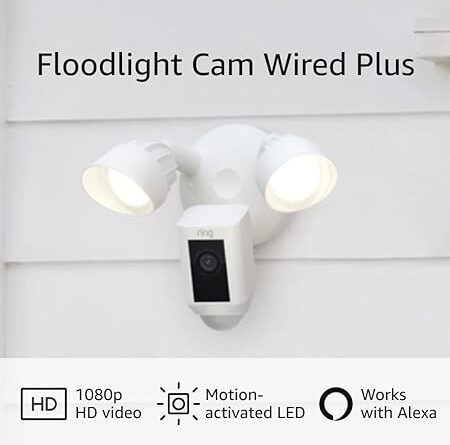
Introduction
In a world where remote work is becoming the norm, remote data entry jobs are an accessible and flexible way to earn income from the comfort of your home. These roles require minimal experience, making them ideal for entry-level workers, parents, students, or anyone seeking a work-from-home career.
This guide will delve into what remote data entry jobs entail, their benefits, how to find legitimate opportunities, and actionable tips to excel in this field. Whether you’re looking for full-time work or part-time flexibility, remote data entry jobs offer endless possibilities.
What Are Remote Data Entry Jobs?
Remote data entry jobs involve managing, inputting, and organizing information into digital systems. Tasks may include entering data into spreadsheets, databases, or software platforms, ensuring accuracy, and maintaining records.
Common Industries for Data Entry Jobs:
- Healthcare: Medical billing and patient record management.
- Finance: Processing invoices, payroll data, and financial reports.
- Retail: Updating product inventories and sales data.
- Logistics: Managing shipment details and delivery records.
- Education: Digitizing student records and administrative tasks.
Benefits of Remote Data Entry Jobs
1. Minimal Requirements
Most data entry jobs only require a computer, internet connection, and basic typing and organizational skills.
2. Flexibility
Remote data entry roles allow you to set your schedule, making them perfect for those balancing other commitments.
3. Accessibility
Entry-level opportunities mean you can start earning without advanced qualifications or specialized experience.
4. Work-Life Balance
With no commute and the ability to work from home, these jobs offer more time for family, hobbies, or education.
5. Steady Demand
Businesses across various sectors rely on accurate data management, ensuring a consistent demand for data entry professionals.
How to Find Legitimate Remote Data Entry Jobs
Finding authentic remote data entry roles requires caution and research to avoid scams. Here’s where to start:
1. Job Boards
Search reputable platforms like:
- FlexJobs: Curated listings of legitimate remote jobs.
- Indeed: Use filters to find data entry roles specific to remote work.
- We Work Remotely: Dedicated to remote opportunities across industries.
2. Freelance Platforms
Websites like Upwork, Fiverr, and Freelancer connect data entry professionals with clients seeking short-term or ongoing help.
3. Company Career Pages
Many organizations post remote data entry roles on their official career pages. Search directly on websites for businesses in healthcare, finance, or retail.
4. Networking
Leverage LinkedIn to connect with professionals and explore opportunities through your network.
5. Avoiding Scams
Beware of job postings that require upfront payments or seem too good to be true. Research the company thoroughly and verify the legitimacy of the listing.
Skills Needed for Remote Data Entry Jobs
- Typing Speed and Accuracy
Fast and accurate typing is crucial for entering large volumes of data. Aim for a typing speed of at least 40–60 words per minute (WPM). - Attention to Detail
Ensuring data is entered correctly and consistently is a core responsibility. - Organizational Skills
Managing and sorting data efficiently requires a structured approach to tasks. - Basic Software Knowledge
Familiarity with tools like Microsoft Excel, Google Sheets, and data management software is essential. - Time Management
The ability to meet deadlines and prioritize tasks ensures productivity.
Tips for Success in Remote Data Entry Jobs
1. Invest in Ergonomic Equipment
Set up a comfortable workspace with a supportive chair and keyboard to avoid fatigue during long typing sessions.
2. Use Productivity Tools
Tools like Trello, Clockify, or Focus Booster can help track tasks and manage your time effectively.
3. Double-Check Your Work
Accuracy is paramount in data entry. Always review your work for errors before submitting.
4. Build a Portfolio
Showcasing samples of your previous data entry work can help attract better job opportunities.
5. Take Online Courses
Platforms like Coursera and Udemy offer courses on data management and Excel, enhancing your qualifications.
Potential Challenges and How to Overcome Them
- Monotony:
Repetitive tasks can become tedious. Break your work into manageable sessions and take regular breaks to maintain focus. - Isolation:
Working remotely can feel lonely. Stay connected with colleagues or join online communities of data entry professionals. - Meeting Deadlines:
Balancing multiple projects can be challenging. Use task management tools to prioritize and allocate time effectively. - Scams:
Remain vigilant for illegitimate job offers. Stick to trusted platforms and always verify the employer’s credentials.
Success Stories
Daniel M. (Data Entry Freelancer):
“I started doing data entry part-time while in college. The flexibility allowed me to earn extra income without interfering with my studies.”
Rachel T. (Remote Data Entry Specialist):
“After transitioning from an office role to remote work, I’ve been able to spend more time with my family while maintaining my career.”
Ahmed R. (Full-Time Remote Worker):
“Remote data entry opened doors for me to work for international clients, earning a steady income without leaving my home country.”
xpanding Your Career in Remote Data Entry Jobs
As you gain experience in remote data entry jobs, you might wonder about the possibilities for growth and advancement in this field. While these roles are often entry-level, they can serve as a stepping stone to more specialized or higher-paying opportunities. Here’s how to expand your career in remote data entry and make the most of your work-from-home experience.
Exploring Specializations
Remote data entry jobs are not limited to basic tasks. Many industries require specialized data entry professionals with niche expertise. For instance:
- Medical Data Entry: This role involves managing patient records, insurance claims, and billing information. It often requires knowledge of medical terminology and compliance with privacy laws like HIPAA.
- Legal Data Entry: Focused on handling legal documents, case files, and contracts, this specialization may require familiarity with legal jargon and confidentiality standards.
- Financial Data Entry: Professionals in this area manage payroll, budgeting data, and financial reports. Advanced roles might require skills in accounting software or financial analysis.
By exploring these specialized areas, you can increase your earning potential and job security while diversifying your experience.
Enhancing Your Technical Skills
Investing in technical skills is a key step toward advancing in remote data entry jobs. For example, proficiency in Microsoft Excel, Google Sheets, and data visualization tools like Tableau can set you apart from other candidates. Additionally, learning programming languages such as Python or SQL can help you transition into roles like data analysis or database management.
Online platforms like Udemy, Coursera, and LinkedIn Learning offer affordable courses to build these skills. Certifications in relevant software, such as Microsoft Office Specialist (MOS) for Excel, can also boost your credibility and make you more marketable to employers.
Transitioning to Data Management Roles
As you gain confidence and expertise, consider moving into data management roles. These positions involve overseeing data entry operations, maintaining data accuracy, and ensuring compliance with organizational standards. Responsibilities may include:
- Supervising a team of data entry professionals.
- Creating data workflows and processes to improve efficiency.
- Auditing and analyzing large datasets for quality assurance.
Data management roles not only come with higher pay but also offer opportunities for leadership and long-term career growth.
Combining Data Entry with Freelancing
Freelancing platforms like Upwork, Fiverr, and Freelancer provide opportunities to expand your data entry work into a freelance business. Freelancers often enjoy greater control over their workload and rates. Moreover, freelancing allows you to diversify your income by working with multiple clients across industries.
To succeed as a freelancer, focus on building a strong profile and portfolio. Highlight your skills, certifications, and successful projects to attract clients. Offering niche services, such as transcription or data cleaning, can also help you stand out in a competitive marketplace.
Leveraging Networking and Mentorship
Networking is an often-overlooked strategy for advancing in remote data entry. Join online communities or forums for remote professionals, such as LinkedIn groups or Reddit threads dedicated to data entry and remote work. Engaging with these communities can lead to new opportunities, collaborations, and valuable insights.
Additionally, consider seeking mentorship from experienced professionals in data management or analysis. Mentors can provide guidance on career development, skill enhancement, and navigating industry trends.
Keeping Up with Industry Trends
The world of data entry is constantly evolving, with new technologies and methodologies shaping the field. Staying updated on these trends is essential for long-term success. For example:
- Automation Tools: Familiarize yourself with data entry automation software like Zapier or OCR (Optical Character Recognition) tools, which can streamline repetitive tasks.
- Data Privacy Regulations: Stay informed about laws like GDPR and CCPA, which impact how businesses handle data.
- Remote Work Innovations: Explore tools and strategies to improve collaboration and productivity in a remote environment.
By staying ahead of these trends, you position yourself as an adaptable and forward-thinking professional, ready to take on more complex roles.
Conclusion
Remote data entry jobs are an excellent choice for those seeking flexibility, supplemental income, or an entry point into remote work. With minimal barriers to entry, steady demand, and the ability to work from home, these roles provide a practical and rewarding career path. By honing your skills, leveraging the right tools, and avoiding common pitfalls, you can thrive in the field of remote data entry and enjoy the benefits of location-independent work.








